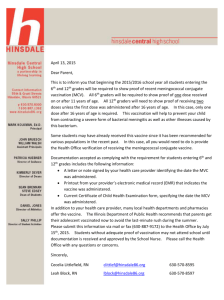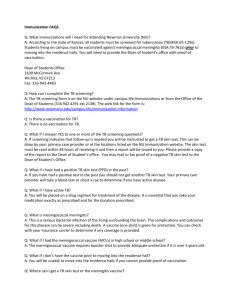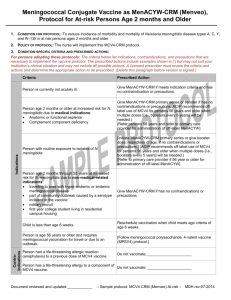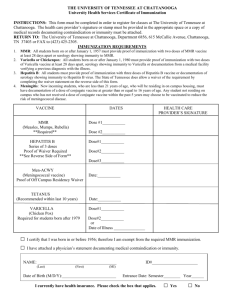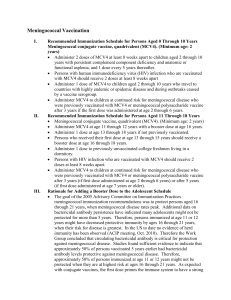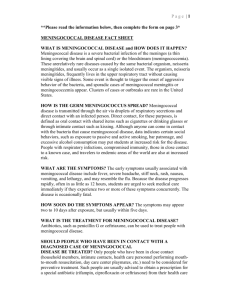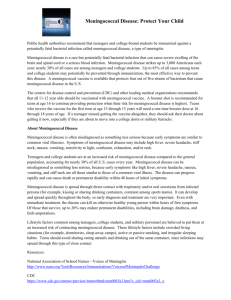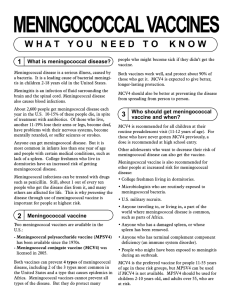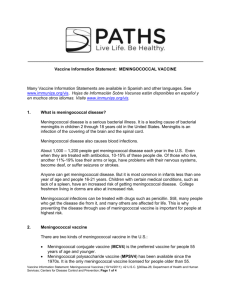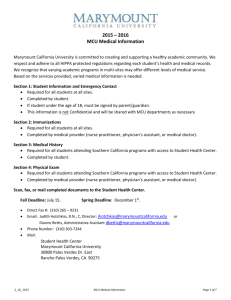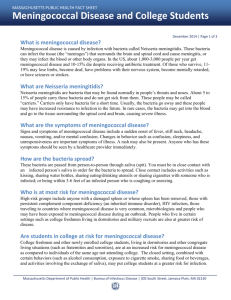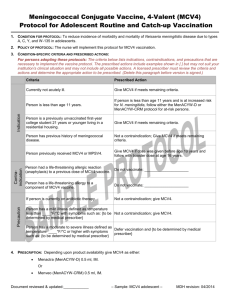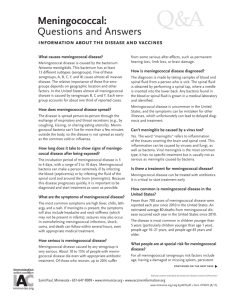Meningococcal Vaccine Questions & Answers Who should get the
advertisement
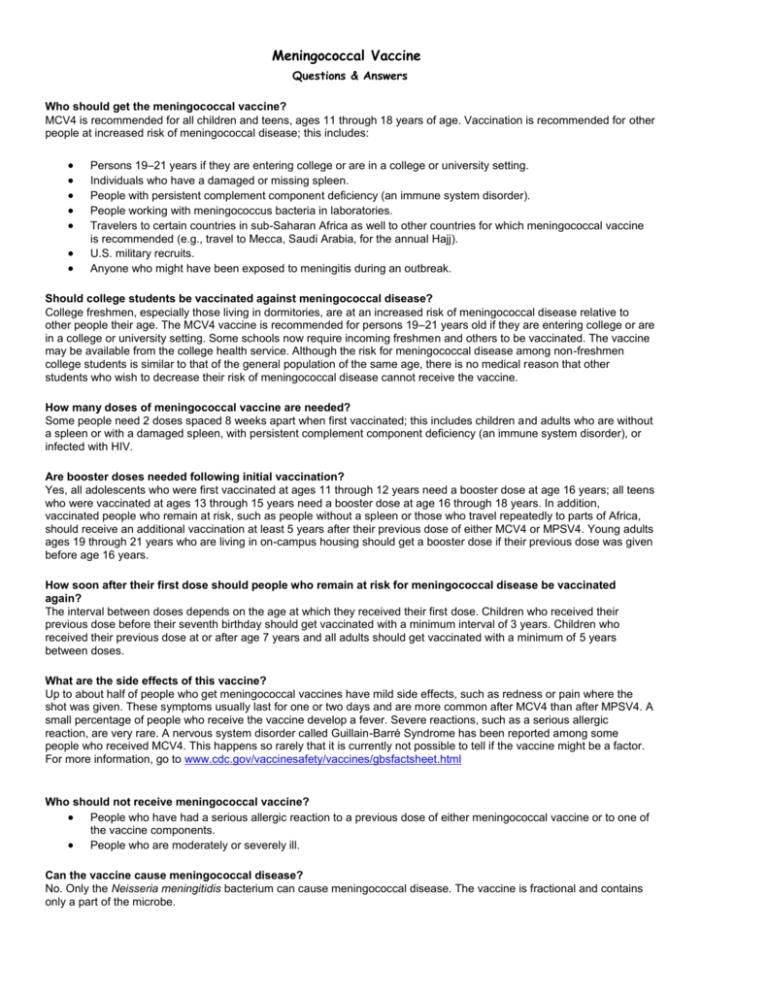
Meningococcal Vaccine Questions & Answers Who should get the meningococcal vaccine? MCV4 is recommended for all children and teens, ages 11 through 18 years of age. Vaccination is recommended for other people at increased risk of meningococcal disease; this includes: Persons 19–21 years if they are entering college or are in a college or university setting. Individuals who have a damaged or missing spleen. People with persistent complement component deficiency (an immune system disorder). People working with meningococcus bacteria in laboratories. Travelers to certain countries in sub-Saharan Africa as well to other countries for which meningococcal vaccine is recommended (e.g., travel to Mecca, Saudi Arabia, for the annual Hajj). U.S. military recruits. Anyone who might have been exposed to meningitis during an outbreak. Should college students be vaccinated against meningococcal disease? College freshmen, especially those living in dormitories, are at an increased risk of meningococcal disease relative to other people their age. The MCV4 vaccine is recommended for persons 19–21 years old if they are entering college or are in a college or university setting. Some schools now require incoming freshmen and others to be vaccinated. The vaccine may be available from the college health service. Although the risk for meningococcal disease among non-freshmen college students is similar to that of the general population of the same age, there is no medical reason that other students who wish to decrease their risk of meningococcal disease cannot receive the vaccine. How many doses of meningococcal vaccine are needed? Some people need 2 doses spaced 8 weeks apart when first vaccinated; this includes children and adults who are without a spleen or with a damaged spleen, with persistent complement component deficiency (an immune system disorder), or infected with HIV. Are booster doses needed following initial vaccination? Yes, all adolescents who were first vaccinated at ages 11 through 12 years need a booster dose at age 16 years; all teens who were vaccinated at ages 13 through 15 years need a booster dose at age 16 through 18 years. In addition, vaccinated people who remain at risk, such as people without a spleen or those who travel repeatedly to parts of Africa, should receive an additional vaccination at least 5 years after their previous dose of either MCV4 or MPSV4. Young adults ages 19 through 21 years who are living in on-campus housing should get a booster dose if their previous dose was given before age 16 years. How soon after their first dose should people who remain at risk for meningococcal disease be vaccinated again? The interval between doses depends on the age at which they received their first dose. Children who received their previous dose before their seventh birthday should get vaccinated with a minimum interval of 3 years. Children who received their previous dose at or after age 7 years and all adults should get vaccinated with a minimum of 5 years between doses. What are the side effects of this vaccine? Up to about half of people who get meningococcal vaccines have mild side effects, such as redness or pain where the shot was given. These symptoms usually last for one or two days and are more common after MCV4 than after MPSV4. A small percentage of people who receive the vaccine develop a fever. Severe reactions, such as a serious allergic reaction, are very rare. A nervous system disorder called Guillain-Barré Syndrome has been reported among some people who received MCV4. This happens so rarely that it is currently not possible to tell if the vaccine might be a factor. For more information, go to www.cdc.gov/vaccinesafety/vaccines/gbsfactsheet.html Who should not receive meningococcal vaccine? People who have had a serious allergic reaction to a previous dose of either meningococcal vaccine or to one of the vaccine components. People who are moderately or severely ill. Can the vaccine cause meningococcal disease? No. Only the Neisseria meningitidis bacterium can cause meningococcal disease. The vaccine is fractional and contains only a part of the microbe.
